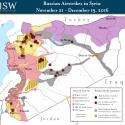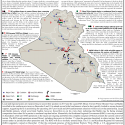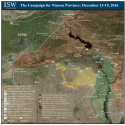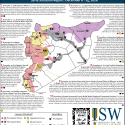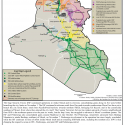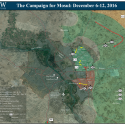Syria Situation Report: December 15 - 22, 2016
Dec 22, 2016 - Chris Kozak
Turkey, Russia, and Iran released a joint statement - termed the ‘Moscow Declaration’ - noting that all three countries agree to “facilitate and become the guarantors” of any political agreement to end the Syrian Civil War following a trilateral meeting in Moscow, Russia on December 20. Meanwhile, pro-regime forces announced their full control over Aleppo City on December 22 following the last evacuations from the remaining opposition-held districts of Eastern Aleppo City.


